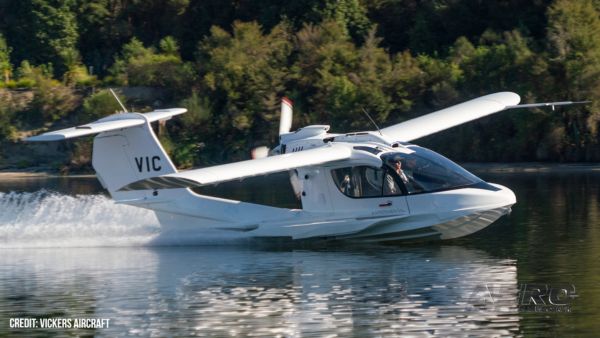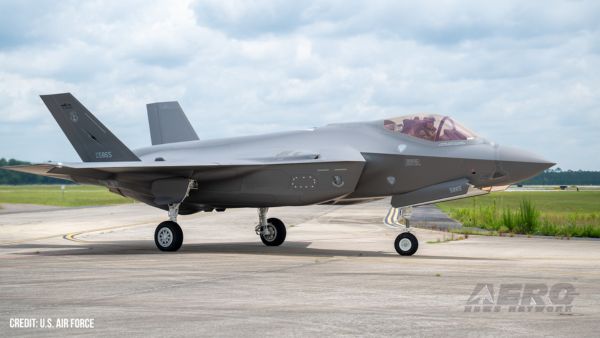Fri, Nov 19, 2010
Department Of Civil Aviation Will Enforce I.C.A.O. Annex 6,
Part 2, Section 3 Seventh Edition – Version 4
As of Thursday, the Government of Bermuda has begun to require
compliance with I.C.A.O. Annex 6 Part 2 Section 3 Seventh Edition
– Version 4. In a letter addressed to "All operators of
General Aviation aircraft (FAR Part 91 and 125 or equivalent) with
a Maximum Take Off Mass in excess of 5,700kgs (12,500lbs)," the
Bermuda Department of Civil Aviation said that all visiting
privately registered/Corporate aircraft (FAR Part 91 and 125 or
equivalent) will be required to be compliant with the
regulations.

Some of the major changes or new standards applicable to
International Operations include:
- An operator "shall establish and maintain a safety management
system (SMS) that is appropriate to the size and complexity of the
operation. (3.3.2.1)
- An operator shall provide, for the use and guidance of
personnel concerned, an Operations Manual.(3.4.2.2)
- An operator shall establish a fatigue management program.
(3.4.2.8)
- Where a MMEL is established for an aircraft type, the operator
shall include in the Operations Manual a MEL approved by the State
of Registry. (3.6.1.1)
- All aircraft for which the individual certificate of
airworthiness was first issued on or after 1 January 2005 shall be
equipped with a Type 1A Flight Data Recorder. (3.6.3.1.2.2) [please
see additional notice “Visiting US and Canadian registered
aircraft – FDR requirements” on BDCA website]
- All aircraft with a MTOM of over 27,000kgs (approx 59,400lbs)
for which the individual certificate of airworthiness was first
issued on or after 1 January 1989 shall be equipped with a Type 1
Flight Data Recorder. (3.6.3.1.2.3)
- All aircraft with a MTOM of over 27,000kgs (approx 59,400lbs)
for which the individual certificate of airworthiness was first
issued on or after 1 January 1987 shall be equipped with a Cockpit
Voice Recorder. (3.6.3.2.1.3)
- All flight crew members required to be on flight deck duty
shall communicate through boom or throat microphones below the
transition level/altitude. (3.6.12)
Compliance with the I.C.A.O. Annex will be monitored by random
ramp inspections at the L.F. Wade International Airport (TXKF).
Operators discovered to be not compliant will be refused entry to
Bermuda until they can demonstrate compliance.
In relation to the SMS requirement, the Bermuda Department of
Civil Aviation will accept the following as evidence of
compliance:
- IS-BAO registration
- Air Charter Safety Foundation (ACSF) registration
- ARG/US Platinum rating
- Wyvern Registration
- An SMS manual deemed acceptable by the State of Registry
Proof of intent to produce an SMS (e.g. a contract with a vendor
who is enabling IS-BAO registration or a letter from IBAC
confirming the purchase of the IS-BAO standard).
More News
Aero Linx: The American Society of Aerospace Medicine Specialists (ASAMS) The Society is a non-profit organization created to serve as a voice for and represent the professional ne>[...]
Class C Service This service provides, in addition to basic radar service, approved separation between IFR and VFR aircraft, and sequencing of VFR aircraft, and sequencing of VFR a>[...]
Have A Story That NEEDS To Be Featured On Aero-News? Here’s How To Submit A Story To Our Team Some of the greatest new stories ANN has ever covered have been submitted by our>[...]
Also: ERAU Uses UAVs, P550 Group 2 UAS, Starship’s Florida Launches, NASA Missions Chopped The Air Force has put out a call to commission a one-to-one copy of the Iranian-des>[...]
Classic Klyde Morris From 11.07.16 (and Remembering Bob...) FMI: www.klydemorris.com>[...]
 ANN's Daily Aero-Linx (08.27.25)
ANN's Daily Aero-Linx (08.27.25) ANN's Daily Aero-Term (08.27.25): Class C Service
ANN's Daily Aero-Term (08.27.25): Class C Service ANN FAQ: Submit a News Story!
ANN FAQ: Submit a News Story! Airborne-NextGen 08.26.25: Iran UAV Knockoffs, X-37B Spaceplane, Army Training
Airborne-NextGen 08.26.25: Iran UAV Knockoffs, X-37B Spaceplane, Army Training Classic Klyde Morris (08.25.25)
Classic Klyde Morris (08.25.25)



